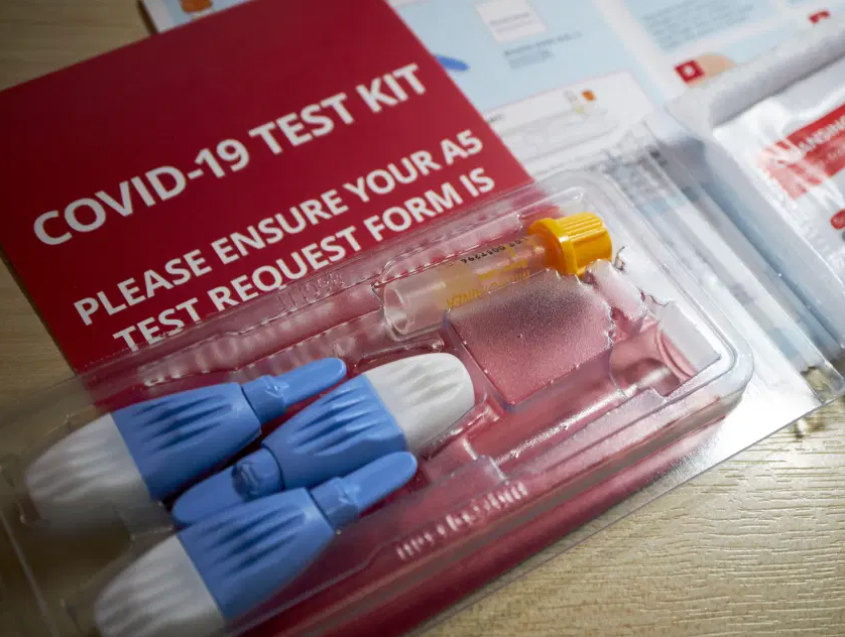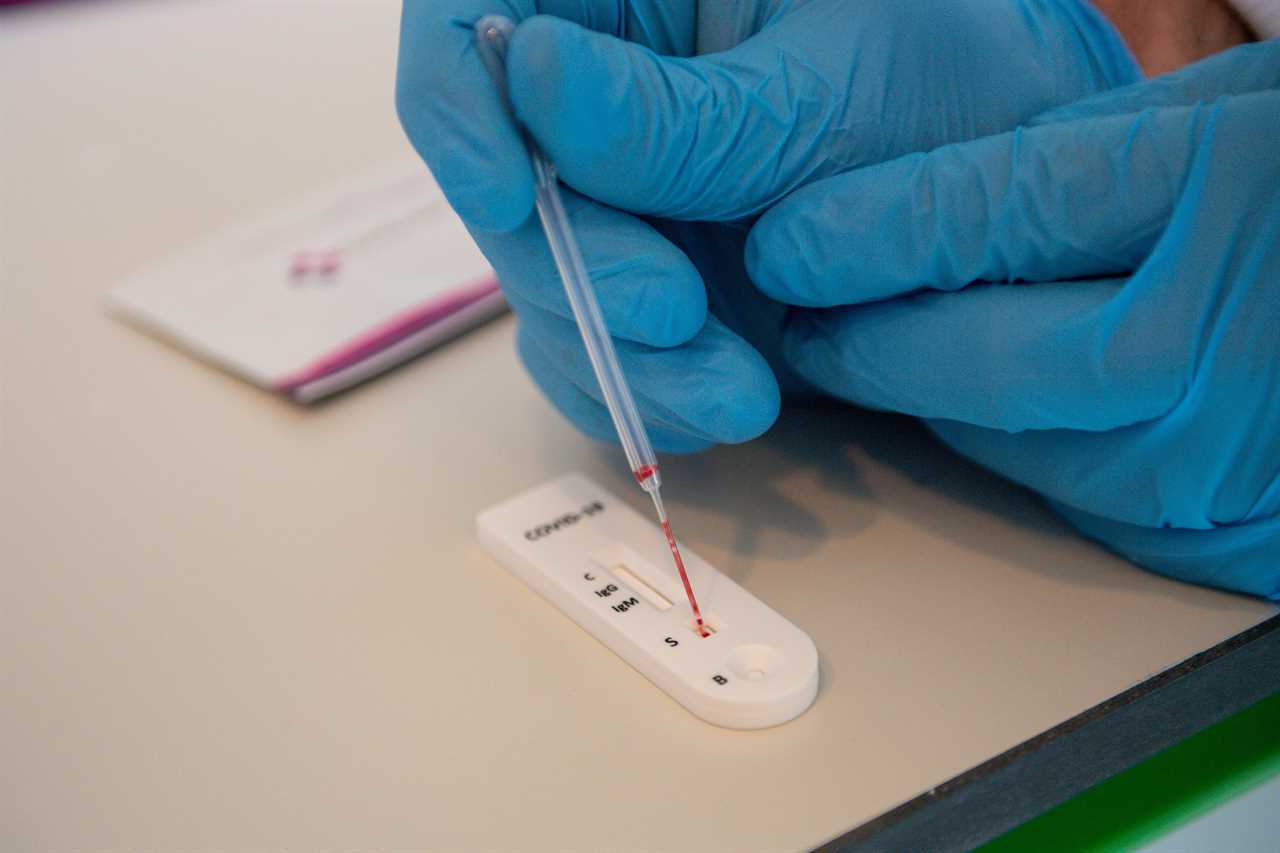THOUSANDS of Brits are set to be given coronavirus antibody tests to check their body’s immune response to Covid-19.
But what are antibody tests and how can you get your hands on one?

If you’ve had coronavirus, experts believe you may have had an immune response which reduces your risk of catching it again or spreading it to others.
The best way to find out whether you have previously been infected with Covid-19 is by testing the blood to see if it contains antibodies to the bug.
Tests had previously been approved by the government but had not been made available to the general public.
From this week, anyone over 18 who becomes infected can check their body’s immune response.
Up to 8,000 people a day will receive two finger-prick tests to complete at home and send to a lab for analysis.
By comparing the results of two tiny blood samples taken 28 days apart, scientists will measure the antibodies generated in reaction to the virus.
The UK-wide scheme will help research into immunity levels built up after jabs and infections and provide a further insight into how effective vaccines are against different variants.
Health Secretary Sajid Javid said: “Our new national antibody testing will be quick and easy to take part in.
“I’m proud to see all parts of the UK uniting around this new initiative to arm ourselves with even more valuable insights into how vaccines are protecting people.”
He urged “everyone to get both vaccinations as soon as possible”.
Here’s what you need to know…
What is a home antibody test?
There are two types of antibody tests.
The first is a lab-based test, known as immunoassays, which require blood samples to be processed in NHS and other laboratories.
And the second is a self-use finger-prick test, called a lateral-flow test, which doesn’t involve any lab processing.
Finger-prick tests indicate the presence of antibodies in the blood, however, generally they only provide this information on a “yes/no” scale.
These are generally what is being referred to when people talk about the home test kits.
Meanwhile, lab-based tests tend to provide more detailed results, for example, they can determine the amount of concentration of antibodies.
This type of test is more detailed and requires a blood sample taken by a health professional.
Experts say that this type of test isn’t safe or reliable enough to carry out at home.

Do antibodies mean I’m immune?
Scientists believe people who have been infected with coronavirus may develop immunity to catching the virus again.
Studies have shown that nearly everyone who recovers from Covid-19 has developed antibodies within two to three weeks of their first symptoms.
This means that people who have been vaccinated and who have previously caught Covid could have optimal immunity against the virus.
Dr Alexander Edwards, an associate professor in biomedical technology at the University of Reading, previously said: “Antibody tests are not yet going to confirm protective immunity for every individual with a positive result.
“The way these tests are configured currently is likely to be to detect a wide range of levels of antibody – this can be a very strong antibody response, or a relatively weak one.
“The reason to detect the weaker responses is to try to detect as many people as possible who have been infected – this is to maximise the “sensitivity”.
“Antibody tests can try to measure the level of antibody, but we don’t yet have data to know whether the level of antibody is related to protection.
“Most people who have recovered would not be expected to become re-infected – but we don’t yet know how strong this protection is or how long it will last.”
What is an antibody test?
The tests work by looking for Covid antibodies, proteins in the blood produced by the body in response to the infection.
The first test shows the level of protection a person had before becoming infected.
The second will give boffins vital data to see how well jabbed people boost their immunity when they are infected.
Dr Jenny Harries, head of the UK Health Security Agency, said: “We are rolling out antibody testing to gain vital data into the impact of vaccination and on immune responses to different variants.
“This has been made possible thanks to the incredible public who continue to come forward for testing when they develop symptoms and the millions who have had their jabs.”
How can I check if a home antibody test is authentic?
To check any medical product is authentic and has been approved for use in the UK look for the CE mark.
CE marking indicates that a product has been assessed by the manufacturer and deemed to meet EU safety, health and environmental protection requirements.
It is required for products manufactured anywhere in the world that are then marketed in the EU.
Which antibody tests are approved in the UK?
Swiss healthcare company Roche Diagnostics’ was the first antibody test to get the go-ahead in the UK, last year.
Public Health England (PHE) said the new test can spot 100 per cent of those who have had the virus with “no false negatives”.
A second test was given the green light by health officials – with five million kits from Abbott Laboratories on standby for the NHS.
Dr Edwards said: “These laboratory tests still require a blood sample to be taken – these are not home tests.
“Whilst so many people who did not get swab tested when they were ill will want to know if they have been infected, it will take significant work to make these tests widely available.”
Some private clinics are offering Abbott antibody tests, which they say have a sensitivity of 97.5 per cent and specificity of 100 per cent.






